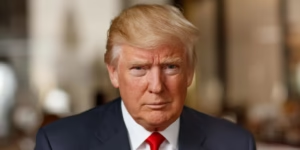Elon Musk Reveals Names of Government Employees Targeted for Cuts, Sparking Fear Among Federal Workers

Federal employees are now facing a new and alarming fear: becoming personal targets of the world’s wealthiest man, Elon Musk, and his massive following.
Last week, amid his usual barrage of social media posts, Musk shared two separate posts on X, previously known as Twitter, which revealed the names and titles of four government employees holding relatively obscure climate-related positions. Though the information he shared is publicly accessible through online databases, his decision to amplify the details has led to significant consequences. Each of Musk’s posts garnered millions of views, exposing the employees to intense public scrutiny. As a result, at least one of the women named has reportedly deleted her social media accounts in response to the relentless harassment and threats.
What makes this situation particularly disturbing is the fact that the individuals Musk targeted hold government roles that are not publicly visible and do not engage directly with the public. These positions are relatively low-profile, yet Musk’s actions have effectively made these individuals the focus of his online followers, many of whom have a track record of harassment toward those Musk deems problematic.
Several current federal workers expressed deep concerns to CNN, fearing that their personal lives may be upended by the negative attention Musk’s posts have brought. Some have even voiced worries about physical threats, while others fear that the public exposure could force them out of their jobs. These fears reflect Musk’s broader goal of reducing government size and influence, a goal he has often discussed publicly. By turning these employees into personal targets, Musk may be achieving his aim without the need for a formal review process, bypassing any checks and balances that would otherwise be in place.
“These tactics are meant to intimidate and sow fear among federal employees,” said Everett Kelley, president of the American Federation of Government Employees (AFGE), which represents over 800,000 federal workers. Kelley stressed that Musk’s behavior is designed to create an environment where federal employees are too afraid to speak out or defend their roles. This, in turn, weakens the federal government and may deter other workers from challenging powerful figures.
Musk’s behavior is not unprecedented. He has a history of publicly targeting individuals who he believes have hindered his goals or criticized him. A former federal employee who had been previously targeted by Musk described experiencing similar intimidation tactics. These methods, she said, are aimed at getting people to either quit or feel so threatened that they remain silent.
Mary “Missy” Cummings, an engineering and computer science professor at George Mason University, had firsthand experience with Musk’s aggressive tactics. She came under fire from Musk after criticizing Tesla’s safety practices while working at the National Highway Traffic Safety Administration (NHTSA). Musk’s response was swift and public, leading Cummings to feel pressure from both Musk and his followers. She saw it as part of a broader effort to silence critics, sending a clear message to others that they could be next.
For many federal employees, this behavior by Musk has become part of a larger pattern in which private individuals with significant influence, like Musk, can use social media platforms to effectively target and intimidate public servants. The result is a chilling environment where those working in government roles feel increasingly vulnerable to harassment, threats, and personal attacks. Musk’s use of his platform to publicly expose government employees’ identities, especially those working in less visible positions, signals a growing concern about the role of private power in influencing the actions of public officials.
The tactic of using social media to turn government employees into targets reflects Musk’s broader philosophy of reducing the power and scope of the federal government. In this case, by focusing attention on low-profile bureaucrats, Musk seems to be making an example of them, hoping to intimidate others in similar positions. His strategy appears to be working for some, as the fear of being publicly singled out is enough to make some employees reconsider their roles or even leave government service altogether.
The situation is indicative of a wider trend where powerful figures are increasingly using social media as a tool to shape public policy and influence government operations. In doing so, they create a climate of fear and uncertainty, undermining the stability of public institutions and making it difficult for government employees to perform their duties without facing personal attacks. This ongoing tactic has prompted calls for a reconsideration of how social media platforms handle such forms of harassment and the power they grant to individuals like Musk.
In conclusion, Elon Musk’s recent targeting of federal employees on social media has raised serious concerns about the intersection of private influence and public service. By exposing the identities of government workers, he has subjected them to public scrutiny and harassment, creating an atmosphere of fear. This pattern of intimidation, aimed at weakening government institutions, highlights the risks of unchecked power and the need for greater protections for federal workers.







